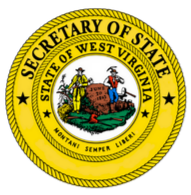CHARLESTON, W.Va. — Outside events – including brutal winter weather and a catastrophic oil train derailment in nearby Fayette County – overshadowed the sixth week of the 2015 regular session of the Legislature.
Monday’s derailment near Mount Carbon, about 30 miles from the state Capitol, caused numerous tank cars – each carrying 30,000 gallons of volatile Bakken Shale crude oil – to explode and burn, destroying a nearby house. Remarkably, no one was killed or seriously injured.
Unlike January 2014, when a leak at a chemical storage facility near Charleston contaminated the water supply for 300,000 West Virginians served as a call to action for the Legislature, ultimately leading to passage of the Water Resources Protection Act (SB373), the Legislature’s reaction to the derailment was muted.
Senate Transportation Chairman Chris Walters, R-Putnam, did call on the Legislature to study issues with the transportation of hazardous materials through the state, in light of the derailment as well as a tractor-trailer wreck in Greenbrier County in January that contaminated the water supply for the city of Lewisburg.
“I think we absolutely need to do a study on rail and highway transportation of potentially dangerous materials,” he added. “I think a study would be appropriate, and then enacting legislation if needed.”
Also Monday, more than 1,000 construction workers braved heavy snow and bone-chilling temperatures for a rally on the north steps of the Capitol to protest pending bills to repeal or revamp the state’s prevailing wage act, and to make West Virginia a right-to-work state.
“These folks feel like they’re under attack,” said Josh Sword, secretary treasurer of the state AFL-CIO. “I don’t think there’s any other way to describe it.”
Also during the week:
— The House passed 76-21 a bill expanding medical malpractice
liability caps to cover nursing homes, pharmacies, and a variety of
health care professionals (SB6).
liability caps to cover nursing homes, pharmacies, and a variety of
health care professionals (SB6).
The law was originally enacted in 2003 to address a crisis in which doctors in the state were unable to obtain affordable malpractice insurance coverage.
Supporters of the bill said nursing home operators are currently
facing a similar insurance availability crisis in light of a multi-million dollar liability verdict against a Charleston nursing
home.
facing a similar insurance availability crisis in light of a multi-million dollar liability verdict against a Charleston nursing
home.
Opponents said the bill would protect nursing homes where patients are neglected or injured because of chronic, systematic understaffing.
“We’re going to take care of big business, out-of-state corporations that want to be relieved of their responsibility and accountability to West Virginia citizens,” argued Delegate Tim Manchin, D-Marion.
The bill went back to the Senate, to work out minor differences between House and Senate versions of the legislation.
— House leadership moved a bill off the House’s active calendar that would give tax cuts to coal companies and natural gas drillers for a portion of severance tax payments that are used to pay down Workers Compensation fund debts (HB2675).
That was because of amendments pending that instead of awarding the tax cuts, would shift the $10 million of savings to be used for programs to assist senior citizens and expand drug abuse treatment efforts.
Pending amendments would use $6 million to eliminate a 1,500-person waiting list for a state Medicaid program that provides in-home care for senior citizens and disabled persons. The remaining $4 million would go to expand substance abuse treatment programs in the state.
House Finance Chairman Eric Nelson, R-Kanawha, agreed that both programs deserve additional funding, but questioned using severance taxes to fund them. The bill remains on the House’s inactive calendar.
— The Senate passed 33-1 legislation to make judicial elections – for magistrates, family law and circuit court judges, and Supreme Court justices – nonpartisan elections that would take place during the May primary elections (HB2010).
Nonpartisan election of judges has been a key agenda item for the new Republican leadership in the House and Senate.
Senate Judiciary Chairman Charles Trump, R-Morgan, said he sees several reasons why it is better to have nonpartisan judicial elections in May.
“Having it in May puts the judges out of the partisan tumult that happens between May and November,” he said. “It should also reduce the influence of money in the process, because it’s a shorter campaign period.”
—
Attachments (links will expire on 08/31/2015):1. At the Capito1.doc (26 KB) [application/msword]
Download link:
http://perdition.cnpapers.net/horde/imp/attachment.php?id=54e7bc04-d4b4-4fa3-b23d-082b0a00001c&u=philk
Attachments (links will expire on 08/31/2015):1. At the Capito1.doc (26 KB) [application/msword]
Download link:
http://perdition.cnpapers.net/horde/imp/attachment.php?id=54e7bc04-d4b4-4fa3-b23d-082b0a00001c&u=philk





